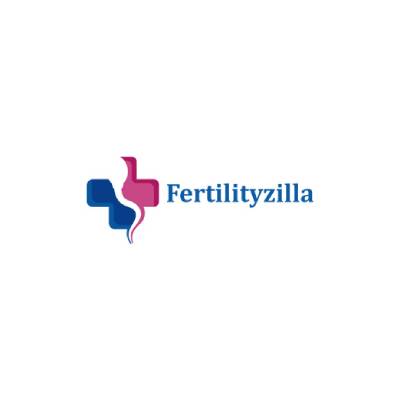How to have a healthy pregnancy with hypothyroidism?
Infertility
Dr. Smriti
Sep 27, 2021
Before I discuss how to have a healthy pregnancy with hypothyroidism, you should know what is hypothyroidism and pregnancy and why should pregnancy be tested? Hypothyroidism refers to a situation in which the thyroid gland doesn’t produce a sufficient number of hormones.
The cause of hypothyroidism is unknown, but if it is not curable on time, it can lead to a large number of health problems such as obesity, joint pain, infertility, and health diseases.
In addition to this, the signs and symptoms of hypothyroidism may vary depending upon the deficiency of hormones, and the problem of hypothyroidism develops slowly and slowly in your body. At first, the symptoms which you may notice in your body is fatigue and weight gain.
Now let me answer this question what is the relationship between hypothyroidism and getting pregnant? First, suppose women are planning to get pregnant.
In that case, it is essential that you should go for thyroid testing because it is said that pregnant women with an enlarged thyroid and the high blood level of thyroid antibodies may lead to developmental delay in the child, which needs to be a cure on time.
In this article, I will tell you in brief about Hypothyroidism and pregnancy. My article will tell you whether is it possible to have a healthy pregnancy with hypothyroidism or not? What are the risks associated with it and what treatments you should opt to cure your hypothyroidism?
Is there any connection between Hypothyroidism and Infertility?
Hypothyroidism is a problem in which the thyroid gland doesn’t produce adequate thyroid hormones, which is common for women during pregnancy.
On the other hand, infertility is an issue that women face when they are unable to get pregnant despite having unprotected sex with their male partners after a long period.
The question which might arise in your head is that whether there is any connection between them? Yes, there is a link between hypothyroidism and infertility in females. Due to hypothyroidism, your thyroid gland doesn’t produce an adequate number of hormones, which further creates a problem when eggs releases from their ovary, leading to infertility in females.
Apart from this, disorders of autoimmune and pituitary gland further impart infertility in females. Therefore, to treat infertility, women firstly need to cure their hypothyroidism and consult medical help immediately to embrace their dreams of parenthood.
Still, even after correcting hypothyroidism, the problem of infertility remains in females. They should consult infertility specialists to treat their infertility problems.
Does Hypothyroidism affect fertility of the women?
Hypothyroidism and fertility are two antonyms’ words. If you are suffering from hypothyroidism, it will affect your reproductive organ badly.
Hypothyroidism creates ovulation problems, so if you plan to have a child, you must visit the doctor to treat your hypothyroidism to have a healthy pregnancy.
Hypothyroidism causes failure to ovulate and elevates the hormone Prolactin, which assists with lactation in the female body after delivery. The elevation of Prolactin enables women to experience milk discharge from their breasts constantly.
If the proper treatment is provided to cure hypothyroidism, it will result in normal ovulation and regular menstrual cycles. In addition, the treatment will bring the hormone back to its normal level with the cessation of milk discharge from breasts.
To have a healthy pregnancy, you must treat your hypothyroidism on time, and if you are pregnant with hypothyroidism, you should consult the doctor immediately.
Are there any pregnancy risks with Hypothyroidism?
In this section of my article, I will discuss Hypothyroidism and pregnancy risks. If you have hypothyroidism and get pregnant with the child, what are the risks associated with the pregnancy and how to cure them?
As I have already told you, hypothyroidism is an issue where the thyroid gland doesn’t produce essential hormones. As a result, hypothyroidism badly affects your fertility and reproductive organs.
During pregnancy, women need to maintain the level of thyroid hormone not for their body but also for the development of their baby, which is growing inside their body. Therefore, if you are diagnosed with hypothyroidism, then you should start its treatment without any delay.
However, there are certain risks involved if women get pregnant with Hypothyroidism. Given below are the list of risks:
- There is a delay in the development of the fetus as in the early stage of pregnancy, your fetus is completely dependent on your hormone, and if your thyroid gland is not producing crucial hormones, then your fetus will get lesser hormones. In addition, the thyroid gland plays an important role in the development of the brain, and due to the presence of hypothyroidism, the child may suffer from fewer IQ abilities.
- Hypothyroidism may lead to Preeclampsia, in which the fetus shows high blood pressure and cause internal damage to the organs. This condition is quite serious and can affect the health of the mother and baby.
- Due to the lack of thyroid hormones, unhealthy blood cells are in your body. In addition, lack of iron and other essential nutrients might hamper the growth of your body and red blood cells, which is known as Anemia. If your blood doesn’t consist of healthy red blood cells, which is essential to provide oxygen to your baby, it is an essential threat to your baby’s life.
What are the effects of Hypothyroidism on baby during pregnancy?
If you are pregnant with Hypothyroidism, in this part of my article, I will discuss Hypothyroidism in pregnancy effects on the baby. Hypothyroidism during pregnancy may lead to developmental delay in the child.
I will tell you in brief about Hypothyroidism and pregnancy symptoms through my article. The symptoms of hypothyroidism depend upon its existence in blood. Therefore, many of its symptoms are quite similar to pregnancy symptoms.
During pregnancy, women suffering from hypothyroidism experience various symptoms such as tiredness, fatigue, weight gain, abnormal mensuration, hoarse voice, swelling on the face, unable to stand in cold temperature, slow heart, rate and many more.
However, due to hypothyroidism during the pregnancy phase of the women affects fetus growth badly as in the early months of pregnancy, a baby depends upon the hormone of the mother. Therefore, if the thyroid gland doesn’t produce the crucial hormone, it badly affects the growth of the fetus and results in developmental delay in the child.
Thyroid hormone is essential for the development of the brain in the fetus, but due to the presence of hypothyroidism, a child may possess fewer IQ abilities. So, it is essential to treat hypothyroidism on time to not cause major harm to your child growth.
How can you treat Hypothyroidism during pregnancy?
The question which might be revolving in your mind is that what is Hypothyroidism in pregnancy treatment? It is essential to treat hypothyroidism to deliver a healthy baby. Hypothyroidism can be treated by replacing thyroid hormone.
Hypothyroidism women should have taken the dose of levothyroxine before they get pregnant because the dose of levothyroxine increases during pregnancy by 20-25%. Women suffering from hypothyroidism should increase their dose by 20-30% as soon as the pregnancy is diagnosed in consultation with their doctor to face further ovulation problems.
The thyroid tests should be done thoroughly after every four weeks of their pregnancy so that women can gain normal thyroid throughout their pregnancy. Prenatal vitamins such as iron and minerals can also disrupt the absorption of thyroid hormone from the gastrointestinal tract. Therefore, prenatal vitamins and levothyroxine should not be taken together and have a gap of 4 hours.
Levothyroxine should be taken empty stomach at the same time every day, and by chance, if you miss a dose of levothyroxine, you should take two pills, but this should be done in consultation with a doctor.
What are normal thyroid levels in pregnancy?
This segment of my article will tell you what is the normal range count of thyroid levels in pregnancy as pregnancy put lots of strain over thyroid function. The thyroid gland which is regulated by thyroid-simulating hormone also known as thyrotropin produces the release of thyroid hormone thyroxine[T4] and triiodothyronine[T6].
The normal thyroid levels which you need to maintain in three trimesters of your pregnancy is given below:
- In first trimester, it should between 0.1 to 2.5 Mu/L
- In second trimester, it should be between 0.2 to 3.0 Mu/L
- In third trimester, it should be between 0.2 to 3.0 Mu/L
Conclusion
I hope that the article mentioned above must have given you a clear picture of hypothyroidism and its risks, symptoms, and effects on babies if women get diagnosed with the pregnancy.
If hypothyroidism is diagnosed, it should be treated immediately so that there is no harm to the women’s body if she is further planning for a baby. As already discussed in the article, hypothyroidism is a condition in which the thyroid gland cannot produce the essential thyroid hormone necessary for the growth of the child.
FAQs
Is it possible to treat hypothyroidism if women get pregnant?
Yes, it is possible to treat hypothyroidism if a woman is diagnosed with pregnancy. Thyroid hormone replacement can cure hypothyroidism, and its dosage depends upon individual levels of thyroid hormone.
Is your baby health get affected if you have low thyroid during pregnancy?
The doctor judges a steady blood level of thyroid hormone throughout your pregnancy. They will monitor the blood level of the thyroid-stimulating hormone during the pregnancy, which becomes essential if women suffer from hypothyroidism.
Do you need to go for thyroid testing during your pregnancy?
Women who are planning for their child should go for thyroid testing beforehand. If you are diagnosed with hypothyroidism, seek medical help immediately and get it treated on time.
Reference links
Hypothyroidism in Pregnancy: Consequences to Neonatal Health |
The Journal of Clinical Endocrinology & Metabolism |
Hypothyroidism in pregnancy (nih.gov)

